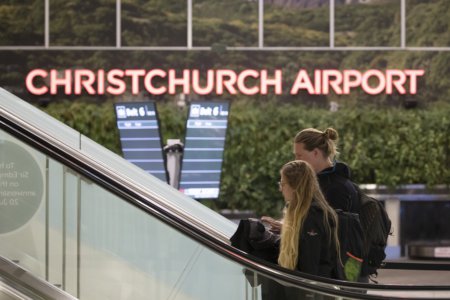
Heads up, students: New Zealand recently made updates to its post-study work visa.
Prime Minister Jacinda Ardern said yesterday that New Zealand would fully reopen its international borders from July 31, 2022 — three months earlier than originally planned — but changes to the post-study work visa will have a huge bearing on international students as there will be tighter requirements for their work rights in the country.
“As part of the Immigration Rebalance changes are being made to post-study work visa settings and the funds needed for student visa applicants to support their stay in New Zealand are being increased,” said the government.
Here’s what students should know about the changes:
High skilled professionals are prioritised
The new policy change will favour degree-level international students.
The government notes that students will continue to be eligible for post-study work rights if they are studying a bachelor’s degree, bachelor honours degree, postgraduate diploma, master’s or doctoral degree that they have studied full time in New Zealand for a minimum of 30 weeks.
Non-degree international students will only be able to qualify for a post-study work visa if their qualification is related to an occupation on the new Green list, which seeks to fill in the skills gaps required to mitigate New Zealand’s skill shortages.
The Green List includes 85 occupations, which will provide international students with a streamlined and prioritised pathway to residency incentivising high-skilled healthcare, engineers, trade and tech sector workers to relocate to New Zealand over a long period.
Changes to work rights in New Zealand for international graduates will only permit them to apply for one work permit, with no additional work permits allowed to be issued.
This is to reduce the length of time that someone can be working in New Zealand without applying for an Accredited Employer Working Visa, where the employer must first check if a New Zealander is available to do the job, said the government.
The government notes that changes made to post-study work visa settings will apply to any student visa applications received on or after May 11, 2022 not covered by transitional arrangements, including student visa applications from people in New Zealand.

Engineering international graduates in New Zealand are encouraged to apply for the post study work visa as the newly updated policies prioritise them based on the country’s emphasis of attracting a larger pool of candidates in highly skilled professions. Source: Will Oliver/AFP
Fund requirements will increase
International students will need to submit proof that they have more funds than previously required to support themselves while studying in New Zealand.
Prospective tertiary students will need to show proof that they have between NZ$15,000 and NZ$20,000 per annum, while the figure is NZ$17,000 for prospective international school students. These amounts will be prorated for shorter lengths of study.
The previously required amount expected of international students to cover their cost of living was NZ$15,000 per year, regardless of their level of study.
“With the exception of some aviation students, students will need to pay tuition fees for the first year, or first programme of study (whichever is the shorter), and they will have to prove funds for the same period,” said the government.
Visa policy changes are expected to improve New Zealand’s economy
Changes to the post-study work visa requirements reflect the government’s initiative to stem the flow of low-skilled migrants into the island nation.
It also seeks to leverage economic opportunities through the contributions of skilled migrants.
The increased exploitation of migrants was an immediate cause of concern for Immigration Minister Kris Faafoi, who said these changes will aim to combat the high reliance on lower-skilled workers during the pre-pandemic days.
Faafoi also emphasised boosting local talents.
“Our plan is to grow skills at home,” he said in a statement. “Over the past two years, over 190,000 New Zealanders have benefitted from government investment in trades training, including apprenticeships. On Monday we announced an extension to the Apprenticeship Boost scheme which will see a further 38,000 New Zealanders supported into a trade.
“The cornerstone of our rebalance is the new Green List which will incentivise and attract high skilled migrants to New Zealand, by providing a new streamlined pathway to residency for those globally hard to fill roles. The list features 85 hard to fill roles including construction engineering, trades, health workers and tech.”
Prime Minister Jacinta Ardern said changes to the post study work visa for international students will diversify the pool of labour, while also speeding up New Zealand’s tourism recovery.
New Zealand’s international border will reopen to all tourists and visa holders from 11.59pm, 31 July 2022.
Online visitor visa applications reopen to Pacific Island Forum countries (excluding Australia) from 16 May. pic.twitter.com/CvNJDWQCse
— Unite against COVID-19 (@covid19nz) May 11, 2022
New Zealand was originally scheduled to repen its borders in October 2022.
The government has already put in place a border class exception for 5,000 international students, which means they can come to New Zealand once their visas are granted.
Due to the pandemic, international student numbers decreased by 23% (11,915), from 50,920 in 2020 to 39,005 in 2021. The country’s international education sector is valued at about NZ$5 billion New Zealand dollars a year to the country.










